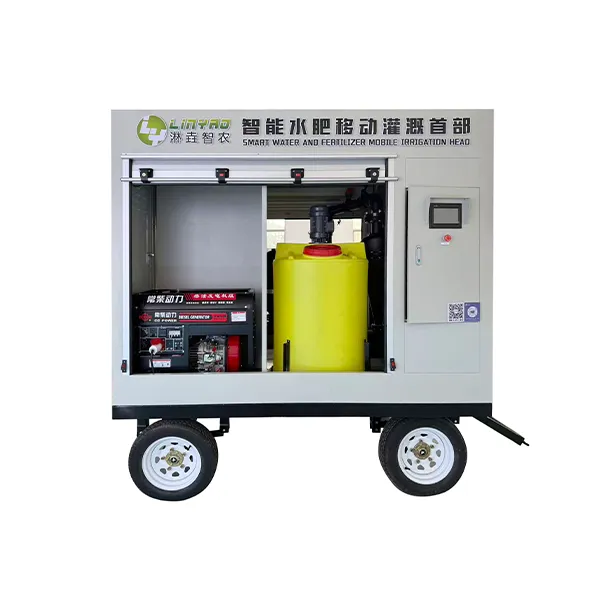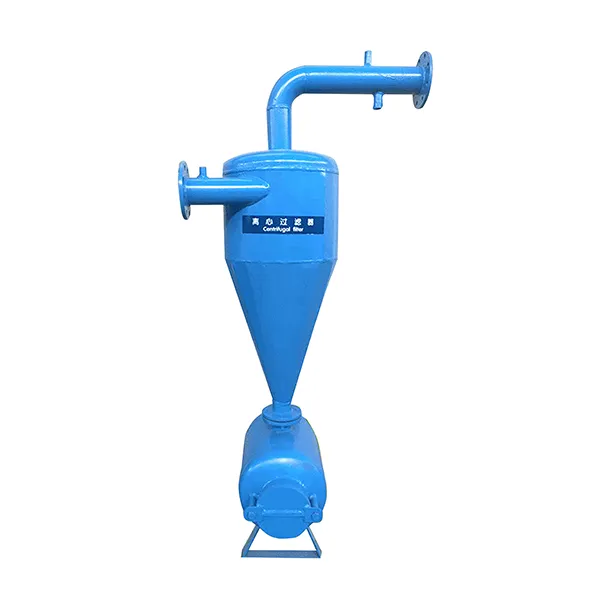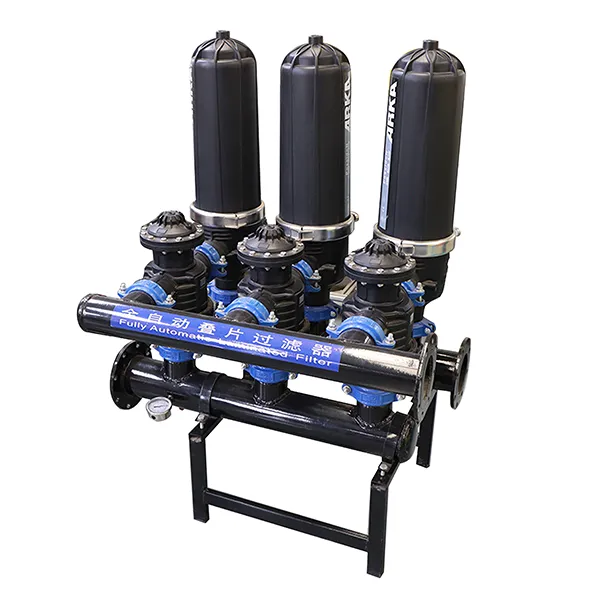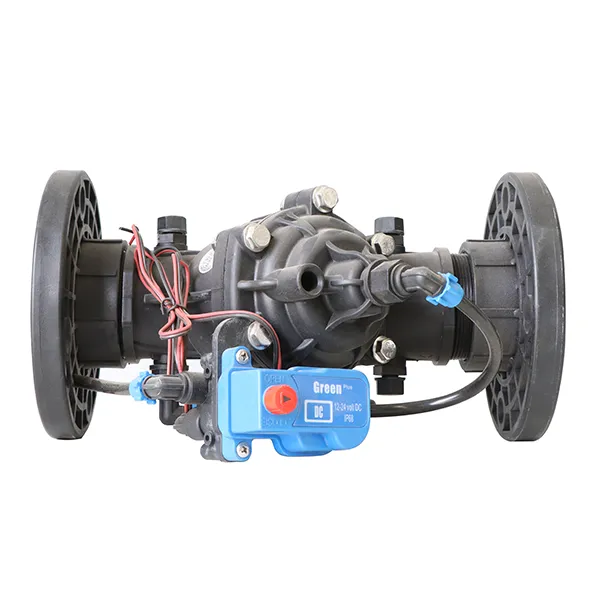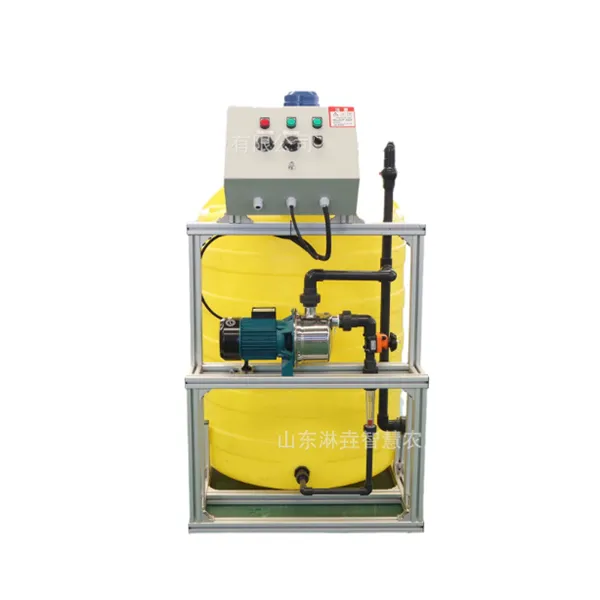
Centrifugal water filter
Here's what's important: centrifugal filters are often confused with simple mechanical ones, but their main advantage is working with water containing sand and abrasive particles. If there is even a little sand in the system, other filters will quickly fail.
A design that everyone copies, but not everyone understands
When I first disassembled a centrifugal filter at a facility in the Krasnodar Territory, I was surprised by its simplicity - no replaceable cartridges, just a rotating rotor. But it is precisely this simplicity that creates problems if installed incorrectly. I saw how in Tatarstan they installed a filter without taking into account the minimum pressure - the result was zero.
I remember forever: for effective sand separation you need a pressure drop of at least 0.3-0.5 bar. Less - and the particles simply do not settle in the sump. Shandong Linyao Intelligent Agriculture Technology LLC always emphasizes this in its technical documentation in its projects, but many installers still ignore it.
Speaking of sand, it is centrifugal systems that save the situation in wells with a high content of fine particles. The mesh filters there clog within a week, but the centrifuge works for years. Tested at a site near Voronezh, where the water from an artesian well was literally “sandy”.
Where are centrifugal filters really needed?
In drip irrigation systems there is no alternative. Especially if the water comes from open sources. I remember in the Rostov region they tried to save money and install only disk filters - after a month the entire drip system failed due to sand.
Another nuance is the seasonality of service. The centrifugal filter requires cleaning the sump once a season, but not more often. Unlike the same mesh ones, which sometimes have to be washed weekly. The website https://www.lyzhihuinongye.ru has specific recommendations for maintenance - excellent material, by the way.
For large farms, I recommend a cascade installation - first a centrifugal filter for coarse cleaning, then a disk filter for fine cleaning. Shandong Linyao Intelligent Agriculture Technology LLC has successfully implemented such a scheme in smart agricultural parks - it has been working without failures for the third year.
Typical errors during operation
The most common is ignoring the pressure drop. If the difference on the pressure gauges is less than 0.2 bar, the filter practically does not work. I saw how in the Stavropol Territory they watered the whole season through a “non-working” one. filter - then I had to change all the drip tapes.
The second mistake is incorrect installation of the drain valve. It must be discharged into a separate container, and not just into a drainage ditch. Otherwise, when flushing, all the settled sand will return to the system.
And yes - never skimp on the diameter of the supply pipes. For a centrifugal filter, flow rate is critical. If the pipes are narrowed, the efficiency drops significantly. Shandong Linyao LLC always makes a reserve in diameter in its projects - and does the right thing.
What problems have you personally encountered?
In Crimea, the entire system had to be remade - previous contractors installed a centrifugal filter immediately after the pumping station, where there were strong turbulent flows. The filter was running empty - vortex flows interfered with separation.
The solution turned out to be simple - they moved the filter 15 meters further along the pipeline, where the flow stabilized. After this, the sand began to separate as expected.
I also remember a case in the Volgograd region - there were a lot of organic suspensions in the water that were not separated by a centrifuge. I had to add an additional filtration stage. Conclusion: a centrifugal filter is not a panacea, but a specialized solution for certain types of contaminants.
Prospects for technology development
Now hybrid solutions are emerging - for example, centrifugal filters with built-in pressure sensors and automatic washing. Shandong Linyao Intelligent Agriculture Technology LLC just announced a similar system for its smart agricultural parks.
An interesting direction is the combination of centrifugal separation with subsequent ultrafiltration. Such systems are still expensive, but they are already beginning to be used for premium greenhouse complexes.
I personally believe that the future belongs to modular systems, where the centrifugal filter becomes the first, but not the only, cleaning stage. Especially considering that the quality of water in wells is gradually deteriorating - there is more sand and suspended matter.
Practical recommendations for choosing
First, be sure to do a water analysis. Without this, it is impossible to select an adequate filtration system. A centrifugal filter is needed only if there are mechanical suspensions of a certain fraction.
Second, consider not the initial cost, but the cost of ownership. A centrifugal filter is more expensive than a mesh filter, but does not require constant replacement of cartridges. It will definitely pay for itself in 3-5 years.
And lastly, work only with trusted suppliers. Such as Shandong Linyao Intelligent Agriculture Technology LLC, which provides a full cycle - from design to service. Otherwise, you risk receiving equipment that does not meet the declared characteristics.
Correspondingproducts
Related Products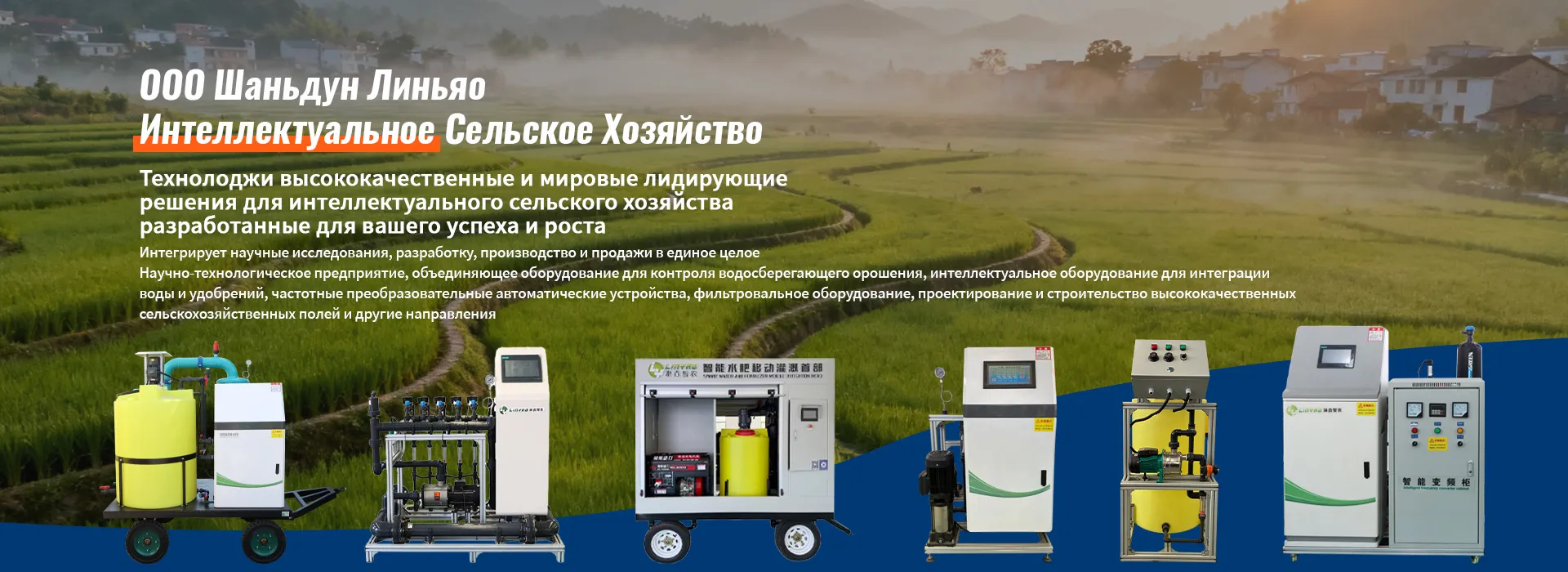
Best Sellingproducts
Best Selling Products-
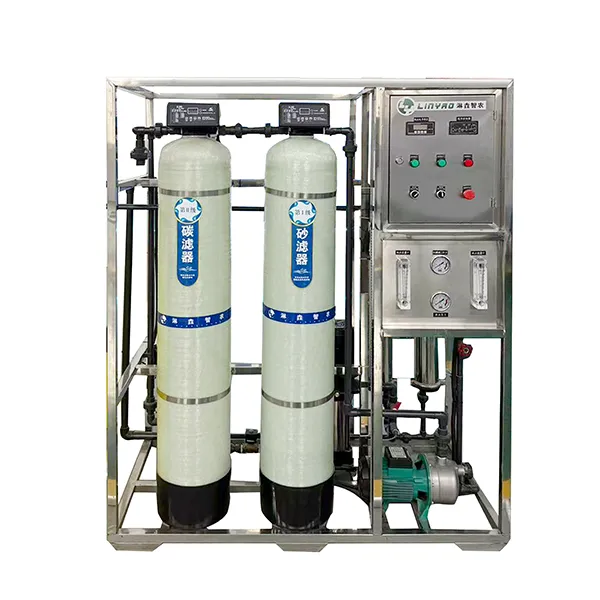 ABC Single Stage Reverse Osmosis Water Purification System
ABC Single Stage Reverse Osmosis Water Purification System -
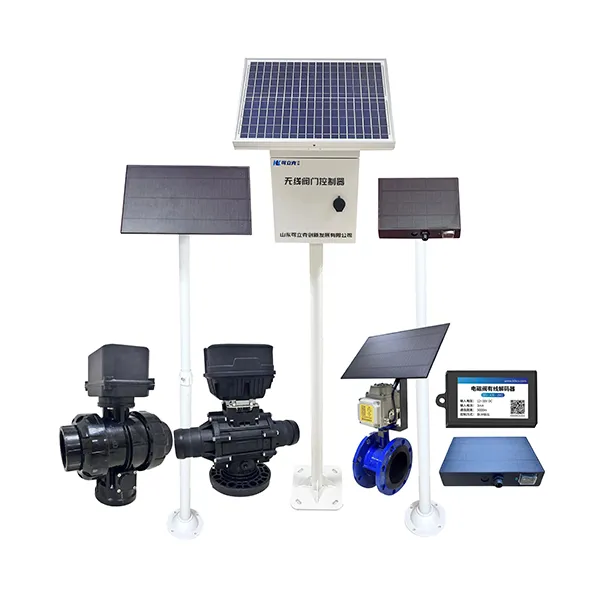 Wireless valve control
Wireless valve control -
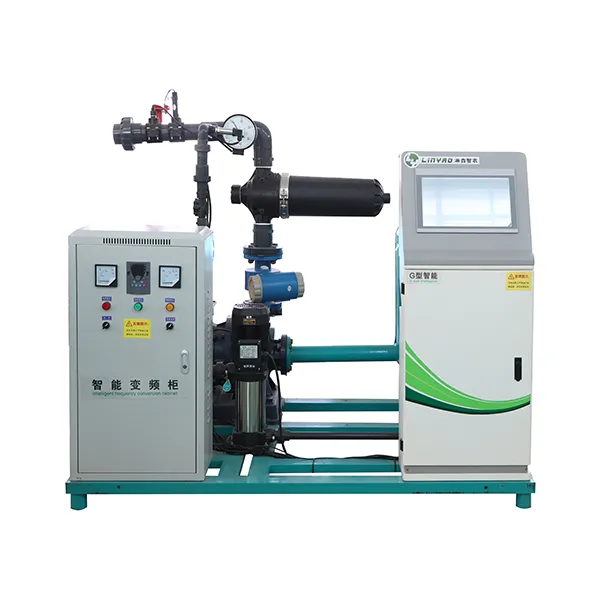 Intelligent Irrigation Control System
Intelligent Irrigation Control System -
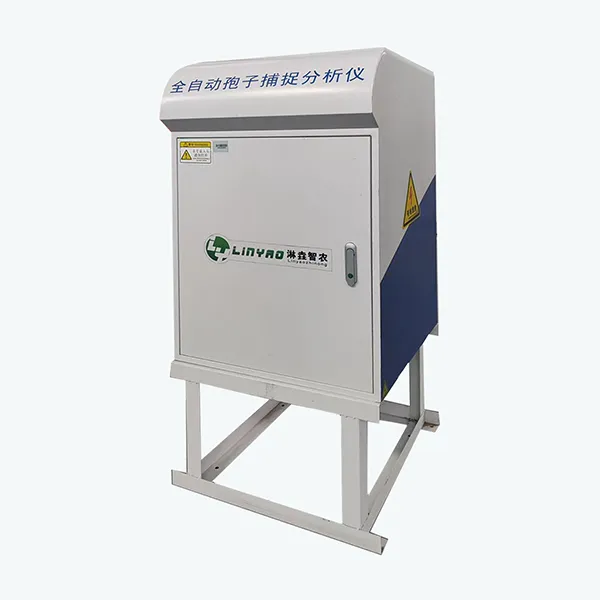 Fully automatic spore analyzer for agriculture
Fully automatic spore analyzer for agriculture -
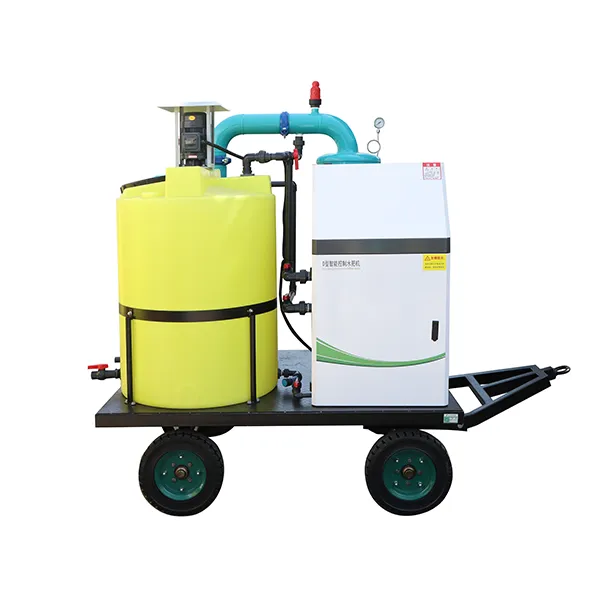 Mobile water and fertilizer integration apparatus
Mobile water and fertilizer integration apparatus -
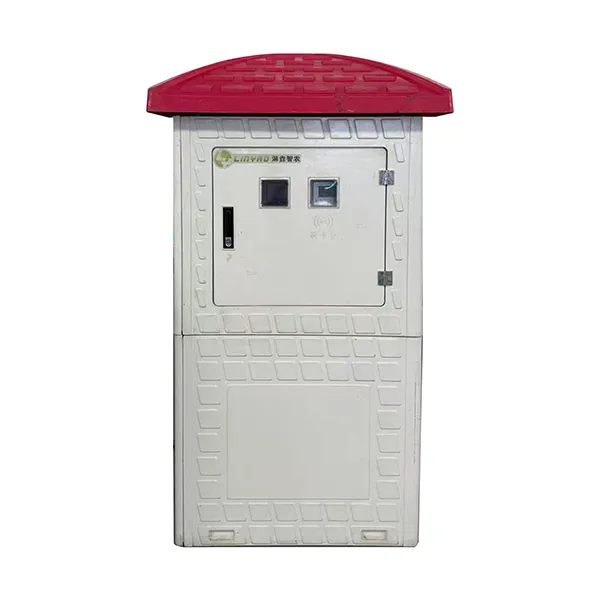 Radio Frequency Device for Irrigation Measurement and Control
Radio Frequency Device for Irrigation Measurement and Control -
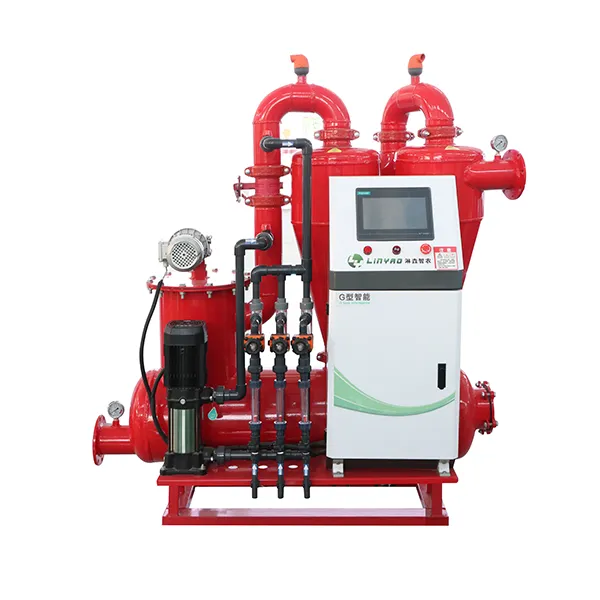 Automated Dual Function Water Fertilizer Filtration Machine
Automated Dual Function Water Fertilizer Filtration Machine -
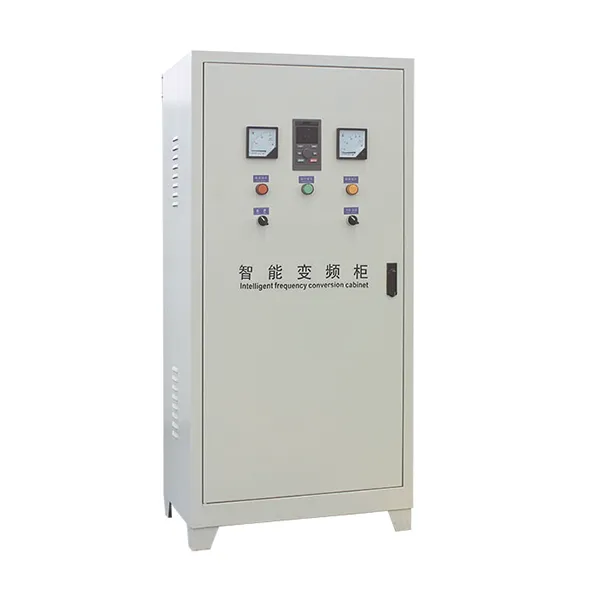 Intelligent Frequency Converter Cabinet
Intelligent Frequency Converter Cabinet -
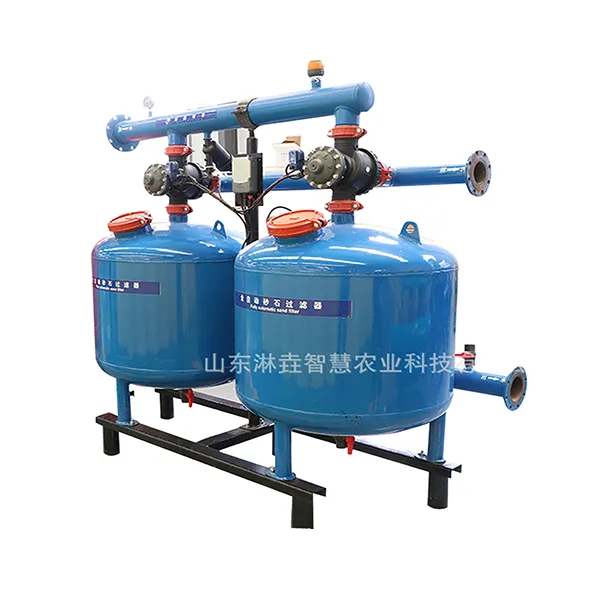 Automatic Backwash Sand Filter for Drip Irrigation System
Automatic Backwash Sand Filter for Drip Irrigation System -
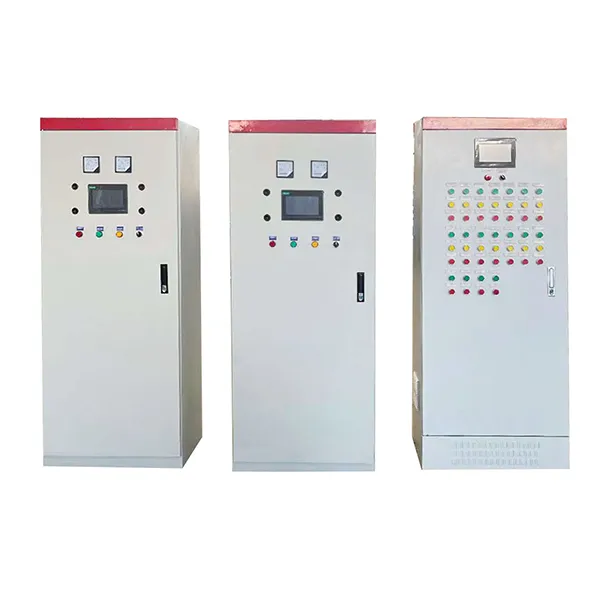 IoT-based greenhouse control cabinet
IoT-based greenhouse control cabinet -
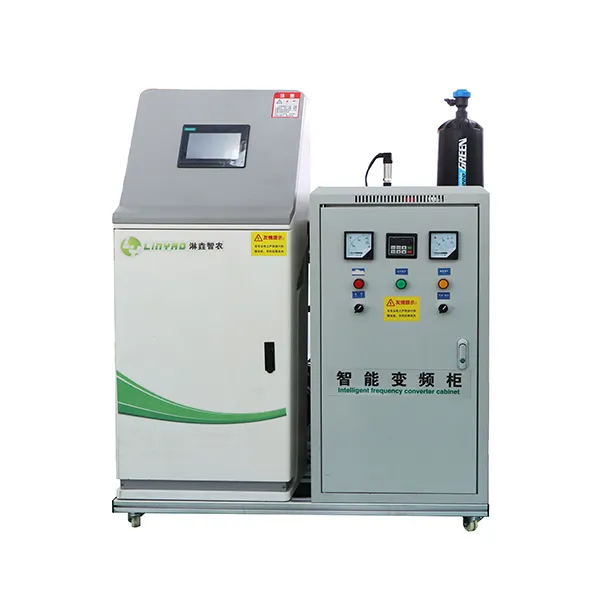 Main Fertilizer Irrigation Plant
Main Fertilizer Irrigation Plant -
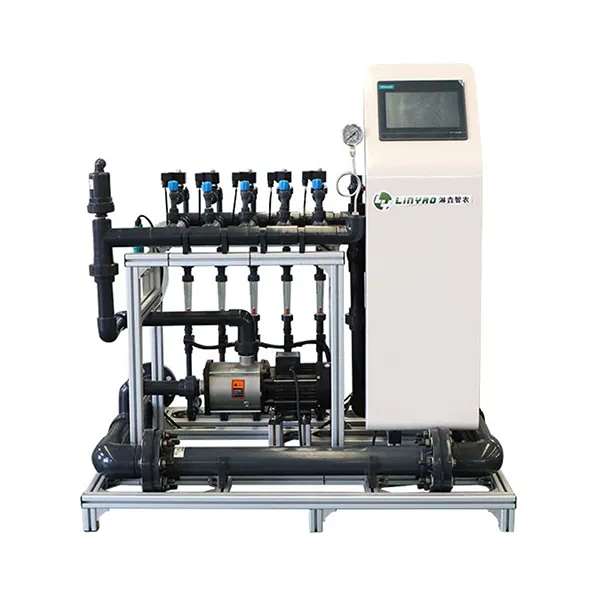 Intelligent Fertilizer Dosing Machine
Intelligent Fertilizer Dosing Machine
Relatedsearch
Related Search- Centrifugal filters suppliers
- Reverse osmosis water purification plant
- Electric Actuated Ball Valve Main Buyer Country
- Mobile water pumping stations supplier
- Electric valves suppliers
- Electrical Control Valve Manufacturers
- Land irrigation system
- Centrifugal water filter supplier
- Irrigation and fertilization equipment, simple intelligent water and fertilizer integration apparatus main buyer country
- Agricultural land irrigation system manufacturer


